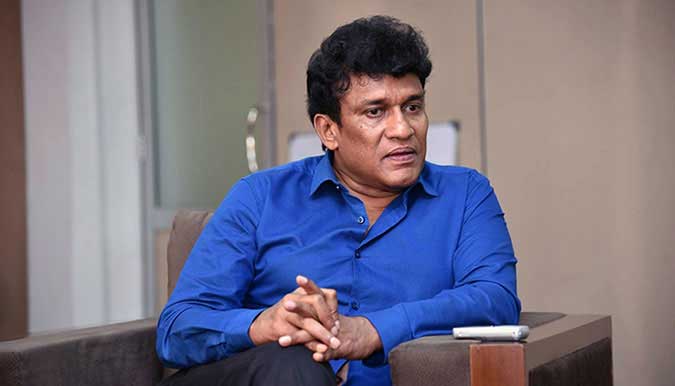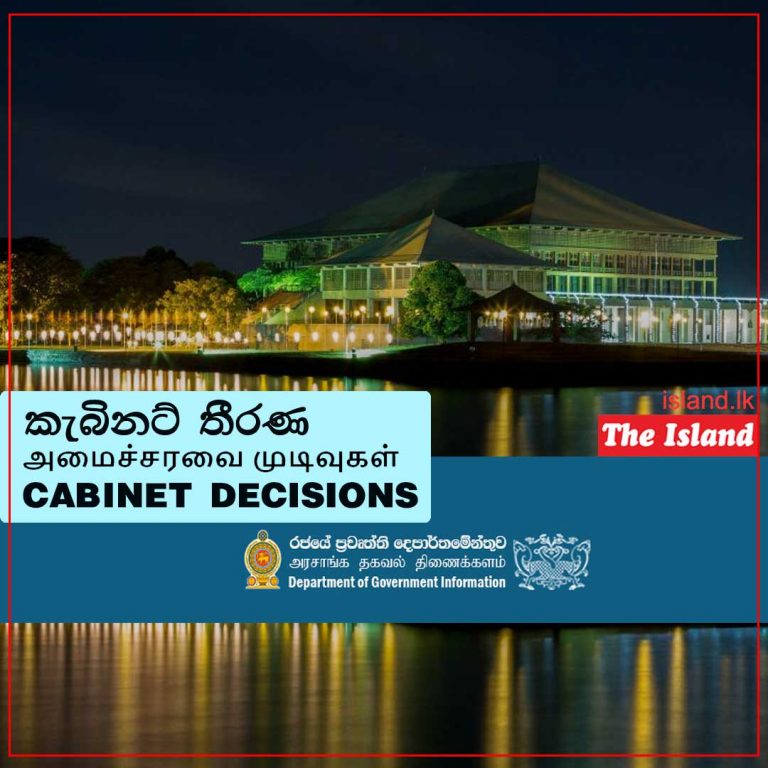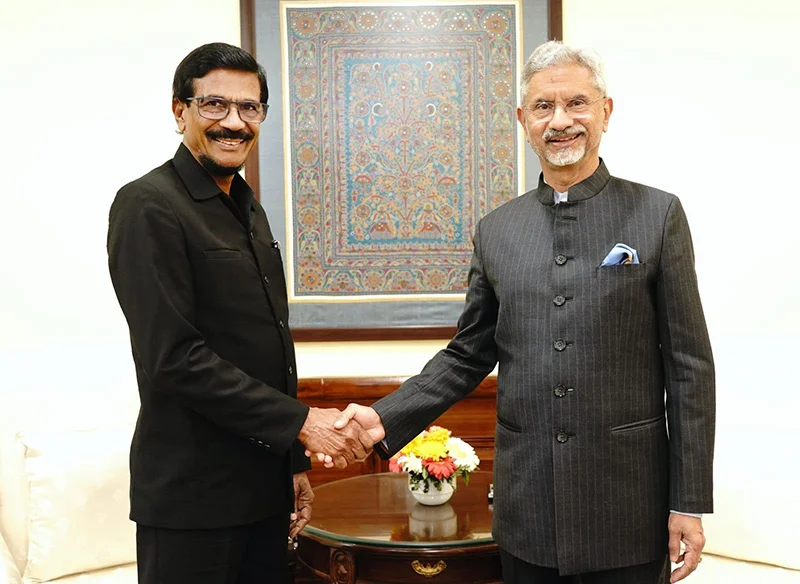News
Mano warns govt. over Adani pullout

Tamil Progressive Alliance (TPA) leader and SJB MP Mano Ganesan has said that the sudden exit of Adani Green Energy may discourage investments, particularly in the renewable energy and infrastructure sectors.
Claiming that Adani’s withdrawal as a major setback, Ganeshan said that it had sent the wrong signal to the world.
Speaking in Parliament during the Budget debate on Saturday, Ganesan accused the government of mishandling the project and asserted that it was not the NPP government that dropped Adani, but rather the Indian conglomerate that abandoned the government.
“You didn’t drop Adani. The truth is Adani dropped you,” the MP said, criticising the government and President Anura Kumara Dissanayake over its handling of the project.
The Opposition MP also argued that the Adani project was not just about supplying energy to Sri Lanka’s domestic grid but also aimed at exporting power to India, a move that could have generated revenue for the country.
“Our concerns over pricing, if any, could have been negotiated. Instead, this government failed to recognise the long-term economic benefits of energy exports to India,” Ganesan said.
The MP also questioned President Anura Dissanayake’s recent visit to the United Arab Emirates, questioning its outcome.
“President went to the UAE and returned. What happened there? Is any investment coming in? International investors, especially from the Middle East and Europe, would only consider Sri Lanka if Indian partnerships were in place,” he said.
Taking to social media, Ganesan reiterated his concerns and said, “The prospective energy export through grid connectivity with India would have brought revenue to Sri Lanka. You failed to understand this with an eye on the future. The exit of Adani has sent wrong signals to potential foreign investors looking at Sri Lanka”.
Last month, Adani Green Energy announced its withdrawal from two proposed wind power projects in Sri Lanka, following the new government’s decision to renegotiate tariffs. The decision was conveyed in a letter sent by the company to Sri Lanka’s Board of Investment.
Adani’s renewable energy arm had planned a USD 442 million investment in Sri Lanka’s wind power sector, covering both generation and transmission. However, the newly-elected government, under President Anura Kumara Dissanayake, aimed to cut electricity costs tied to Indian conglomerate’s energy projects in the country.
News
Cabinet approves construction of new 300 bed Base Hospital in Deniyaya

The Cabinet of Ministers approved the resolution forwarded by the Minister of Health and Mass Media to relocate the Deniyaya Base Hospital after constructing a new hospital with a capacity of 300 beds at an estimated cost of Rupees 6,000 million.
The Southern Provincial Department of Health has acquired a plot of land in Handford estate which is approximately 03 kilometres away from the town for this purpose.
News
Cabinet nod to legally empower methodology for implementing the ‘Praja Shakthi’ poverty alleviation national movement

The Cabinet of Ministers granted approval for the resolution furnished by the Minister of Rural Development, Social Security and Community Empowerment to instruct the Legal Draftsman to draft a bill to legally empower the implementation of ‘Praja Shakthi’ (Strength of the Community) poverty alleviation national movement
News
NPP not under Indian pressure to hold PC polls – JVP

…preliminary work started on new Constitution
JVP General Secretary Tilvin Silva yesterday (17) maintained that the NPP government was not under Indian pressure to hold the long delayed Provincial Council elections.
The top JVP official said so appearing on Sirasa Pathikada, anchored by Asoka Dias. Tilvin Silva said that neither the devolution nor terrorism issues had been discussed during his meeting with External Affairs Minister Dr. S. Jaishankar and Deputy National Security Advisor Pavan Kapoor, in New Delhi. This was Tilvin Silva’s first visit to India.
Declaring that politics hadn’t been on the agenda, the JVPer said that the Indian focus was entirely on economic development and technology.
The JVP General Secretary visited India under the Indian Council for Cultural Relations’ (ICCR) Distinguished Visitors Programme from 5-12 February 2026. General Secretary Silva was accompanied by Kitnan Selvaraj, MP, Ilankumaran Karunanathan, MP, JVP Central Committee Member Janaka Adhikari, JVP’s Media Unit Head Hemathilaka Gamage and Member of JVP’s International Relations Department Kalpana Madhubhashini. The delegation visited New Delhi, Ahmedabad and Thiruvananthapuram.
Responding to another query, Tilvin Silva said that Dr. S. Jaishankar had reiterated that India would always remain a true and trusted partner for Sri Lanka, in accordance with its ‘Neighbourhood First Policy’ and Vision ‘MAHASAGAR.’
Referring to the second JVP insurrection in the late 1980s, the JVPer claimed that they had not been against India but responded to the actions of the then Indian government.
Sri Lanka enacted the 13th Amendment to the Constitution in the wake of the Indo-Lanka peace accord of July 1987 to pave the way for Provincial Councils.
Tilvin Silva said that since they came to power, Indo-Sri Lanka relations had changed. “India has realised we could work together,” he said.
The JVP official said that preliminary work was underway, regarding the formulation of a new Constitution. The abolition of executive presidency and creation of an Office of President sans executive powers, too, would be addressed, he said, adding that the strengthening of the legislature was the other issue at hand.
Pointing out that the NPP had 2/3 majority in Parliament and could introduce a new Constitution on their own, Tilvin Silva said that they intended to obtain views of all and study the past processes in a bid to secure consensus. The JVP, as the party that campaigned against the introduction of executive presidency, way back in 1978, would lead the current effort to do away with the existing Constitution, he said.
Tilvin promised that they would implement what was in their manifesto.
The interviewer also raised the issue of abolishing the pensions for ex-Presidents. Tilvin Silva said that the Supreme Court, too, had approved the move to abolish pensions to ex-MPs. Therefore there was no issue with that, however, the ex-Presidents pensions couldn’t be done away with as they were made through the Constitution. That would be addressed when the government introduced a new Constitution in consultation with other stakeholders.
By Shamindra Ferdinando
-

 Life style3 days ago
Life style3 days agoMarriot new GM Suranga
-

 Business2 days ago
Business2 days agoMinistry of Brands to launch Sri Lanka’s first off-price retail destination
-

 Features3 days ago
Features3 days agoMonks’ march, in America and Sri Lanka
-

 Opinion6 days ago
Opinion6 days agoWill computers ever be intelligent?
-

 Features3 days ago
Features3 days agoThe Rise of Takaichi
-

 Features3 days ago
Features3 days agoWetlands of Sri Lanka:
-

 News3 days ago
News3 days agoThailand to recruit 10,000 Lankans under new labour pact
-

 News3 days ago
News3 days agoMassive Sangha confab to address alleged injustices against monks













